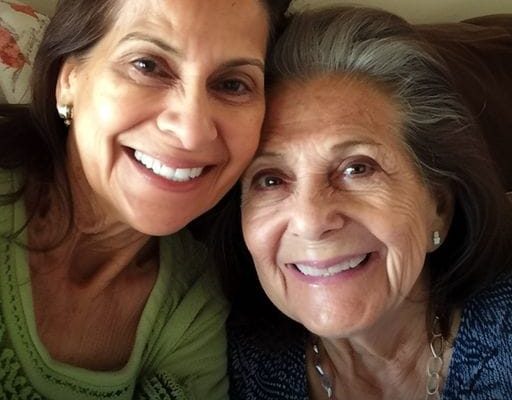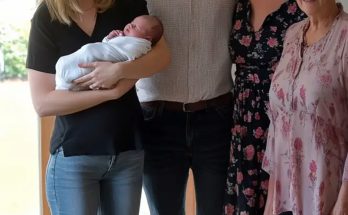From the moment Mark and I got married, Jenna, my mother-in-law, made it clear she wasn’t thrilled about me. Her disapproving looks and subtle digs were a constant thorn in my side. From my cooking to my housekeeping to my parenting, every aspect of my life seemed to be under her microscope, scrutinized and criticized.
So when Mark informed me that Jenna would be coming to stay with us for the weekend, a familiar knot of anxiety tightened in my stomach. I braced myself for the usual barrage of passive-aggressive comments and cold stares.
The evening arrived, and Jenna pulled up to our house. As she stepped out of the car, I tensed, preparing for the customary frosty nod. But instead of the usual icy reception, she greeted me with a smile and a warm hug.
“Nelly, dear,” she said, her voice unexpectedly soft, “It’s so good to see you.”
I stood there, frozen, my mind racing to comprehend what was happening. Jenna, the woman who had been a constant source of criticism, was now treating me with genuine kindness.
As the evening unfolded, the strangeness only deepened. Jenna continued her surprising behavior. She complimented the dinner I prepared with sincerity rather than her usual backhanded remarks. She helped me clean up afterward, and her assistance came without a single complaint or comment. And then, as if that weren’t enough, she offered to put the kids to bed so I could have some much-needed rest.
I couldn’t shake the feeling that something was amiss. Her sudden kindness felt out of place, almost too good to be true. I needed answers, so later that night, when the kids were asleep and Jenna had retired to her room, I decided to confront Mark.
“Mark,” I said, trying to keep my voice steady, “what’s going on with your mom? Why is she being so nice all of a sudden?”
Mark looked puzzled. “I thought you noticed,” he said slowly. “Mom’s been going through some health issues. She’s been struggling with her diabetes, and her doctor told her she needs to be more supportive and positive.”
I stared at him, trying to process the information. Mark continued, “She’s been working on changing her attitude and being more kind. It’s part of her effort to deal with her health better. She realized that her negativity was taking a toll on her, and she wanted to make things right.”
The revelation hit me like a tidal wave. Jenna’s newfound kindness was not just a sudden change of heart—it was a result of her grappling with her own health struggles and a conscious effort to improve her well-being. I felt a mix of relief and sadness wash over me.
The next morning, I saw Jenna in the kitchen, preparing breakfast. Her demeanor was still warm and friendly. I approached her hesitantly.
“Jenna,” I said softly, “I heard about your health issues. I just want you to know that I’m really glad you’re feeling better and that you’re trying to be more positive.”
Jenna’s eyes welled up with tears, and she reached out to hold my hand. “Thank you, Nelly. I know I haven’t been the easiest person to get along with. I’ve been trying to make amends, not just for you but for myself. My health made me realize how important it is to be kind and supportive, and I’m sorry for the way I’ve treated you.”
Her words touched me deeply. In that moment, I realized that Jenna’s change of heart was not just a random act of kindness but a reflection of her personal journey toward self-improvement. It was a difficult road, but seeing her take responsibility for her actions and strive for better was both humbling and moving.
As the weekend continued, the atmosphere in our home transformed. Jenna’s presence, once a source of tension, now brought a sense of warmth and understanding. We spent time talking, laughing, and sharing stories—something I had never imagined possible before.
When Jenna left, I felt a profound sense of closure. The journey from antagonism to understanding had been unexpected, but it had given me a new perspective on forgiveness and the power of change. I realized that sometimes, even the most difficult relationships could find redemption, and the bonds between us could heal, no matter how fractured they once seemed.



